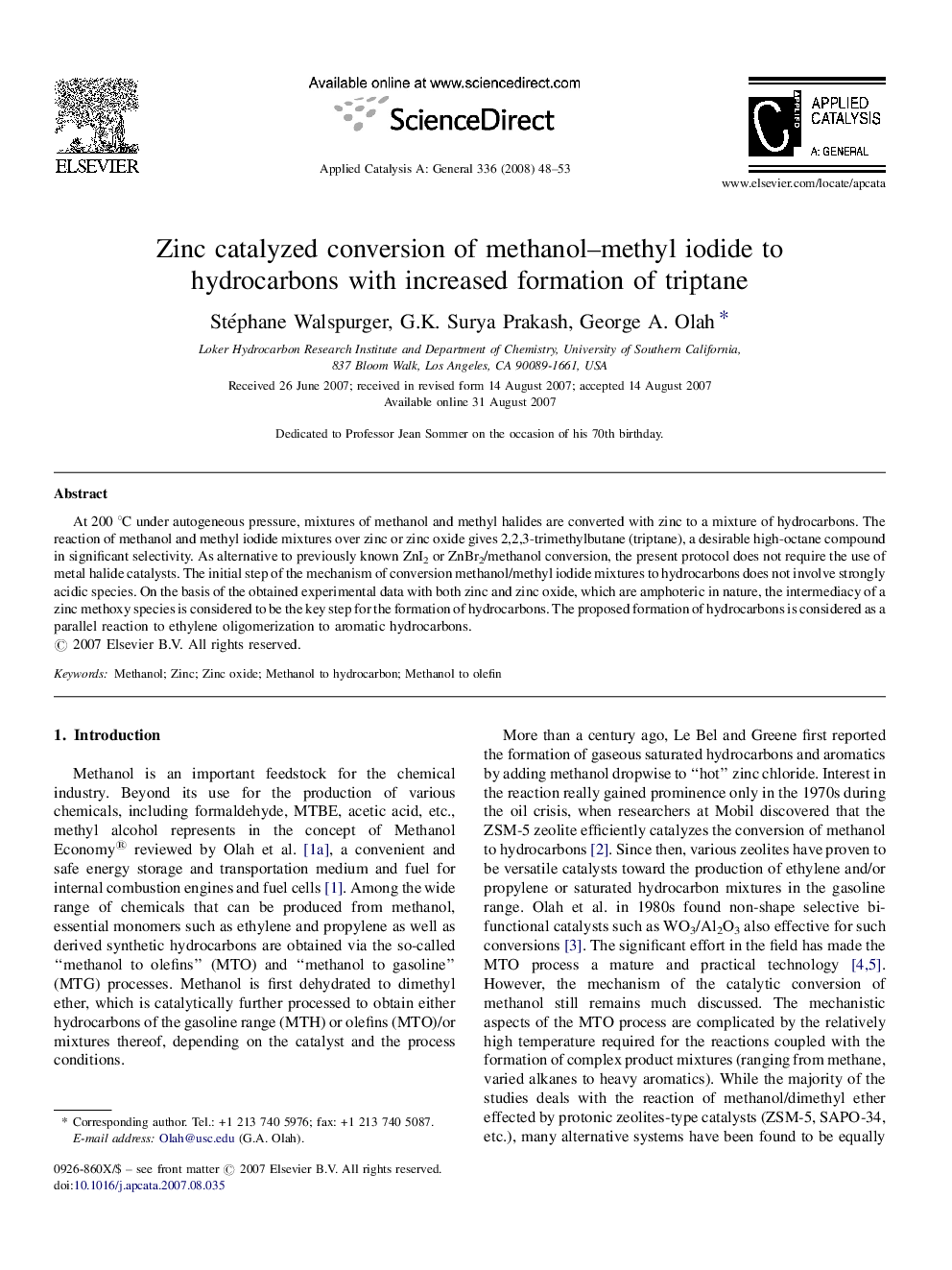| کد مقاله | کد نشریه | سال انتشار | مقاله انگلیسی | نسخه تمام متن |
|---|---|---|---|---|
| 43403 | 45968 | 2008 | 6 صفحه PDF | دانلود رایگان |

At 200 °C under autogeneous pressure, mixtures of methanol and methyl halides are converted with zinc to a mixture of hydrocarbons. The reaction of methanol and methyl iodide mixtures over zinc or zinc oxide gives 2,2,3-trimethylbutane (triptane), a desirable high-octane compound in significant selectivity. As alternative to previously known ZnI2 or ZnBr2/methanol conversion, the present protocol does not require the use of metal halide catalysts. The initial step of the mechanism of conversion methanol/methyl iodide mixtures to hydrocarbons does not involve strongly acidic species. On the basis of the obtained experimental data with both zinc and zinc oxide, which are amphoteric in nature, the intermediacy of a zinc methoxy species is considered to be the key step for the formation of hydrocarbons. The proposed formation of hydrocarbons is considered as a parallel reaction to ethylene oligomerization to aromatic hydrocarbons.
At 200 °C under autogeneous pressure, mixtures of methanol and methyl halides are converted with zinc to a mixture of hydrocarbons. The reaction of methanol and methyl iodide mixtures over zinc or zinc oxide gives 2,2,3-trimethylbutane (triptane), a desirable high-octane compound in significant selectivity. The mechanism of these reactions under amphoteric conditions is discussed. Figure optionsDownload as PowerPoint slide
Journal: Applied Catalysis A: General - Volume 336, Issues 1–2, 1 March 2008, Pages 48–53